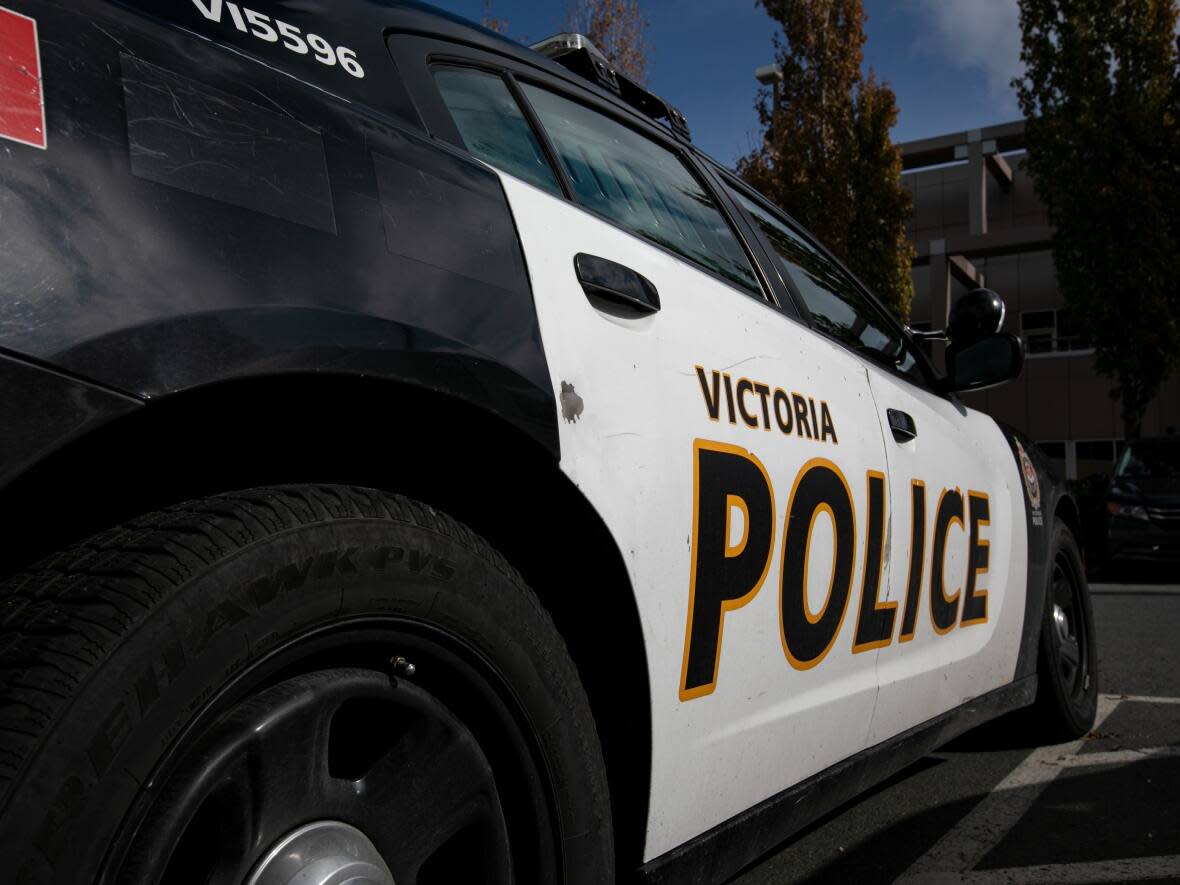Victoria and Esquimalt city councils vote to curb proposed police budget increase

Victoria and Esquimalt city councils voted in separate meetings not to fund several items on the Victoria and Esquimalt Police Board's proposed increased budget, which Victoria's mayor says is an effort to limit the expense passed on to taxpayers.
The VicPD Police Board initially put forward a $69.456-million draft budget for 2023, an increase of 9.6 per cent from the previous year.
In separate Monday night meetings, Esquimalt council denied $1.3 million of the increased budget, while Victoria council voted to curb it by $1.7 million.
Victoria and Esquimalt share policing costs, with Victoria funding the majority of the budget. The VicPD has one of the highest police budgets per capita in Canada.
"This budget is challenging. It's a year when people are struggling, and it has to be a year of restraint," said Esquimalt Mayor Barb Desjardins.
In an interview with CBC's On The Island, Victoria Mayor Marianne Alto said Victoria council has attempted to take a moderate approach to balancing the high inflation rate without exceeding the rate of inflation in its budget.
Rejecting funding for new personnel
Victoria council passed an earlier motion requesting the VicPD Police Board to revise its draft budget to an increase consistent with the rate of inflation, at 6.96 per cent.
The Police Board Finance Committee chair, Doug Crowder, responded in a letter to the mayor and council asking them to reconsider passing the original budget.
"For the board to remove items would conflict with our legislative requirement to provide adequate and effective policing; therefore, the board will not preemptively make any adjustments," he wrote.
Esquimalt and Victoria councils voted on line items in the police budget Monday night that they will not be funding, in order to reduce the requested budget increase.
Victoria rejected funding requests for additional personnel, two of three new frontline officers, and a body-worn camera pilot project, among others. Esquimalt voted similarly, and was unwilling to fund any new personnel or officers for the department.

Alto says this line-by-line examination was a reluctant measure by Victoria council, as it is the only way under the Police Act that municipalities can critically respond to Police Board budgets.
"There isn't an allowance to say generally, 'We want you to reduce X amount of dollars, figure out how to do it,'" she said. "[It's] a peculiar position to put a municipality in."
The VicPD Police Board did not respond to CBC News' requests for comment by publication time.
Esquimalt's concerns
Desjardins says her council's primary concerns stem from a report commissioned by the province that indicated Esquimalt had more police officers than it required.
The VicPD Police Board approved a deployment model for Esquimalt that would reduce it by three officers — however, she says, the police did not follow through in adopting the model.
Until those officers are removed from Esquimalt, Desjardins says council cannot in good faith fund additional officers.
Councils in agreement
Last year, Esquimalt pushed back on the VicPD's proposed budget increase, and was ordered by the province to pay its share of the costs.
This year, Victoria and Esquimalt councils were in agreement on several line items they decided not to approve increased funding for.
"This year is unique in that both councils said, this is too big a budget, we can not afford it," said Desjardins. "But the reality is, both councils have been saying, year over year, this situation is not working."
If the board and the municipalities are unable to reach an agreement, the decision will go to the police director to be resolved.
Former VicPD Police Board member Paul Schachter says he has seen that police directors are not neutral parties, and often feel that increasing policing budgets is important.
"Right now, I think it's a question of who has the most leverage," he said.
Council will consider the draft budget for ratification on Thursday.


